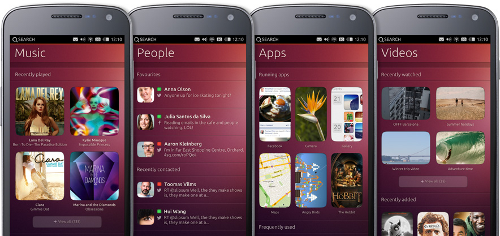The first smartphones to run Ubuntu may appear next year. Tech analysts are, to say the least, split over its chances of success.
Canonical, the group behind what is one of the best-known Linux-based systems, says that smartphones running Ubuntu will also double up as computers through special docks that connect to a screen, mouse and keyboard.
According to Canonical, Ubuntu will target both ends of the smartphone market. For those who want all the bells and whistles, it could mean top-end handsets at a lower price. For those who want a more basic device where web browing and e-mail are the main uses (other than phone calls and texting), it could bring a more reliable and stable performance.
Perhaps appropriately given desktop Ubuntu is often recommended for people terrified of the idea of Linux meaning plain text commmands, Canonical outright describes its planned design for the mobile interface as beautiful. It says key features will include controls that fade into the background when not needed (“deep content immersion” in the company jargon) and separate swiping gestures for the four edges of the screen to make it faster to navigate.
As with all such systems, the hold up is that Canonical won’t be producing any phones itself. Instead it will make its mobile OS available for manufacturers and says it will offer engineering services to make the system easier to integrate. In fact it’s outright encouraging phone makers to drop by its booth at the upcoming Consumer Electronics Show.
It also appears Canonical is trying to push the idea that developers can more easily make applications that scale between a smartphone, mobile computer and desktop machines, all running Ubuntu.
Canonical is therefore relying on getting the right level combination of manufacturers, developers and consumers to make Ubuntu handsets financially viable, something of a chicken and egg cubed situation (and no chicken wants to lay a cubed egg.)
This project is separate to another Ubtuntu project that’s been long in the works but only just announced: Ubuntu for Android. This simply allows Linux PC owners to plug in an Android device and use it as a second desktop display. They will be also able to use the twin display to drag and drop files back and forth between the device and PC.

